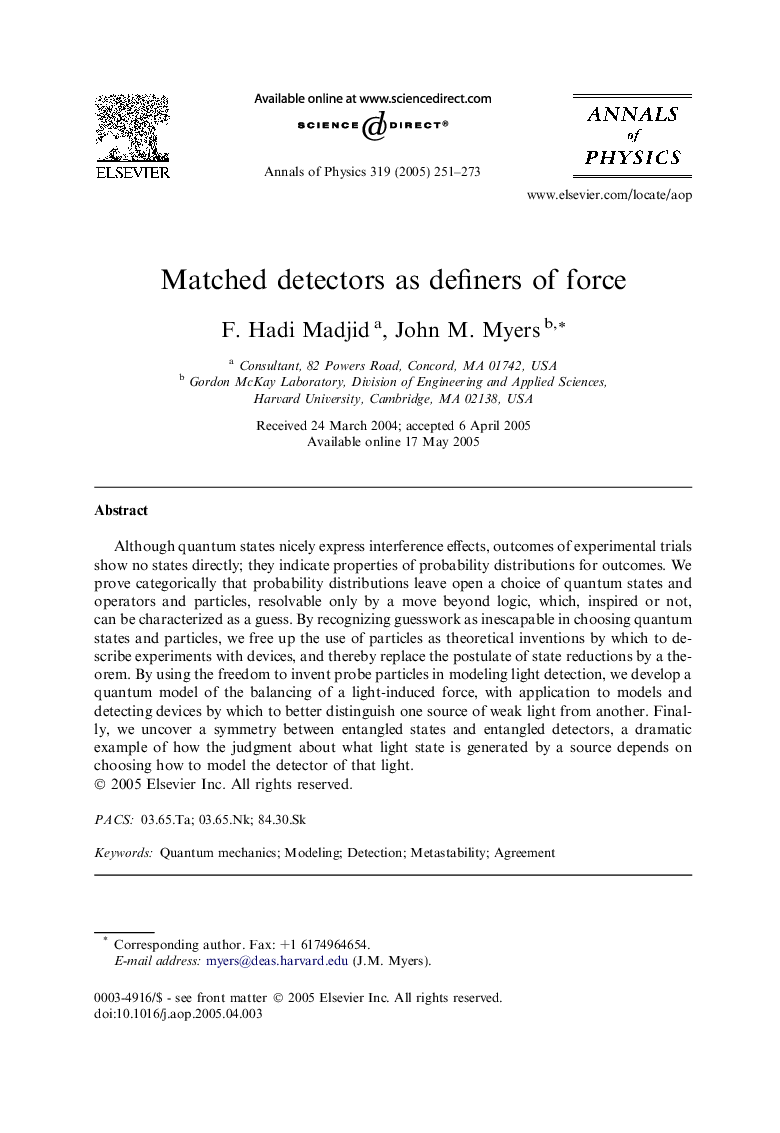| Article ID | Journal | Published Year | Pages | File Type |
|---|---|---|---|---|
| 9867123 | Annals of Physics | 2005 | 23 Pages |
Abstract
Although quantum states nicely express interference effects, outcomes of experimental trials show no states directly; they indicate properties of probability distributions for outcomes. We prove categorically that probability distributions leave open a choice of quantum states and operators and particles, resolvable only by a move beyond logic, which, inspired or not, can be characterized as a guess. By recognizing guesswork as inescapable in choosing quantum states and particles, we free up the use of particles as theoretical inventions by which to describe experiments with devices, and thereby replace the postulate of state reductions by a theorem. By using the freedom to invent probe particles in modeling light detection, we develop a quantum model of the balancing of a light-induced force, with application to models and detecting devices by which to better distinguish one source of weak light from another. Finally, we uncover a symmetry between entangled states and entangled detectors, a dramatic example of how the judgment about what light state is generated by a source depends on choosing how to model the detector of that light.
Related Topics
Physical Sciences and Engineering
Physics and Astronomy
Physics and Astronomy (General)
Authors
F. Hadi Madjid, John M. Myers,
